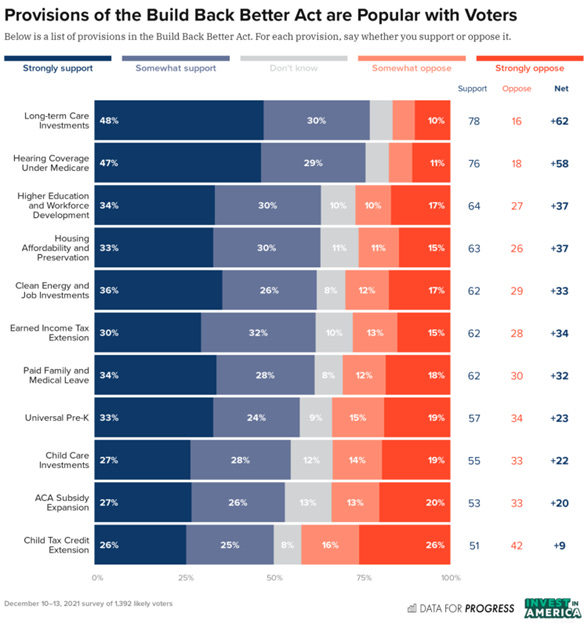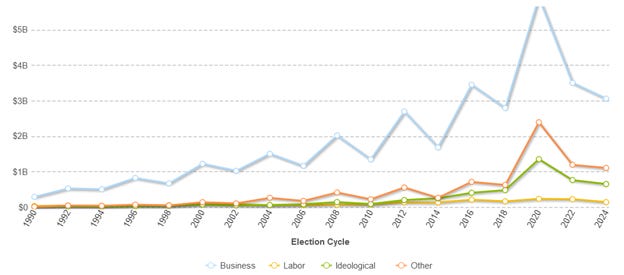Is change coming?
Is there hope that business is changing?
In August of 2019, Business Roundtable, one of the most prestigious groups of corporate leaders whose board includes CEOs of Apple, JP Morgan, Walmart, issued with much publicity it’s “Statement on the Purpose of Corporation.” The Statement, signed by 181 CEOs, promised fundamental commitment to “all of our stakeholders,” including customers, employees, suppliers, communities, and shareholders. As part of their commitment to communities, the signatories also promised to “protect the environment by embracing sustainable practices across our businesses.”
A business world that is committed to stakeholders’ rights, including the right to a healthy environment, is fundamental to bringing the world back from the brink of climatic apocalypse. Yet, while the “Statement on the Purpose of Corporation” received favorably by mainstream media https://www.nytimes.com/2019/08/19/business/business-roundtable-ceos-corporations.htm and in some academic circles, within few months, it became clear that the Statement was “mostly for show.” https://corpgov.law.harvard.edu/2020/08/18/was-the-business-roundtable-statement-mostly-for-show-2-evidence-from-corporate-governance-guidelines, In October of 2019, for example, the CEO of GM, Mary Barra, one of the Roundtable’s board members, rejected GM striker’s demands for higher wages and job security, agreeing only to some wage increases but no job security. GM stocks soared. A year earlier Barra had personally earned $22 million, and GM had made hefty profits and tax breaks. Another board member was Jeff Bezos. His net worth was $110 billion when he signed the “Fundamental Commitment.” One month later Whole Foods announced cutting medical benefits for its entire part-time workforce. Larry Culp, GE’s CEO had made $15 million in 2018. Two months after “Fundamental Commitments,” GE froze the pensions of 20,000 workers to cut costs. Dennis Muilenberg, the Boeing CEO, who had presided over the MAX 737 disaster had made $30 million in 2018 and walked away with another $60 million after being fired by Boeing’s board of directors. Dennis Muilenburg was the director of Business Round Table when the “Fundamental Commitment” was issued. https://www.theguardian.com/commentisfree/2019/dec/29/boeing-amazon-business-ethics-robert-reich Perhaps, this is further proof of Milton Freidman’s position that business should leave the resolution of social issues to the government.
Can we then hope for public policies that will effectively address climate change and environmental destruction?
Not if the same corporations are reshaping public policy to their own narrow financial interests. Large scale campaign of lobbying and advertising by a cross section of corporate America and their associations, including the Business Round Table against Biden’s Build Back Better in 2021 is perhaps a good measure of where the monied class stands on issues of importance to the larger public. Build Back Better was a set of programs that included clean energy investment along with a wide range of social programs that enjoyed the support of large majorities of the American public. https://www.washingtonpost.com/us-policy/2021/08/31/business-lobbying-democrats-reconciliation/
Corporations had no problem supporting a much smaller bill that provided for government investment in infrastructure and offered tens of billions of dollars in corporate subsidies.
In June 2024, eighty CEOs, including Apple’s Tim Cook, JPMorgan Chase’s Jamie Dimon, and Walmart’s Doug McMillon, met with GOP’s presidential nominee, Donald Trump, a sexual assaulter, a convicted felon, and a coup plotter, at the Washington DC headquarters of none other than the Business Roundtable. The CEOs reportedly received Trump’s assurances that in return for their support, he would cut corporate taxes even further and curtail business regulations if elected president.
Much of the business influence in American politics is blamed on the Supreme Court’s 2010 ruling in the Citizen’s United. The ruling allowed corporations along with trade associations, labor unions, and nonprofit groups to spend unlimited amounts of money advocating for or against politicians. Not surprisingly, with their greater wealth, corporations were positioned to benefit the most from the new decision that allowed unlimited political spending as a matter of free speech. It is clear from the graphs below that those political contributions surged after 2010. In the 2020 presidential election cycle, business outspent labor nearly five to one and spent three times more on lobbying in 2023.
Business-Labor-Ideology Split in PAC & Individual Donations to Candidates, Parties, Super PACs and Outside Spending Groups
https://www.opensecrets.org/elections-overview/business-labor-ideology-split
Business, Labor & Ideological Split in Lobbying Data
https://www.opensecrets.org/federal-lobbying/business-labor-ideological
In fact, as Martin Gilens has shown, the advantage in influencing the outcome of policy making in the United States that is enjoyed by the “affluent” stretches back to at least the 1960s. https://www.bostonreview.net/forum/lead-essay-under-influence-martin-gilens As Lee Drutman argues “The consequence is a democracy that is increasingly unable to tackle large-scale problems, and a political economy that too often rewards lobbying over innovation.” https://www.businessinsider.com/how-corporations-turned-into-political-beasts-2015-4. This is despite of public’s distaste for the role money plays in politics. https://www.pewresearch.org/short-reads/2023/10/23/7-facts-about-americans-views-of-money-in-politics/ Yet, money is the key to political success in America. With average of 90% of better-funded candidates winning congressional elections, for example https://www.opensecrets.org/elections-overview/winning-vs-spending there is little hope that the beneficiaries of the present pay-to-play politics would agree to any reform of the electoral system that jeopardizes their political careers by taking money out of politics.
Is the reform of the electoral politics, even if possible, enough for empowering publics to stem the tide of environmental breakdown?
Because climate and environmental breakdown are systemic problems, they require solutions that are global in nature and require participation on equal footing by all nation-states. Yet, international institutions such as the United Nations, either lack the authority to enforce environmental regulations or, as the case is with WTO, IMF, and the World Bank, are narrowly structured to promote market economies under Western control.
The UN climate and Environmental warnings are routinely ignored by most of its member states. The UN Global Compact and the UN Guiding Principles on Business and Human Rights are signed by member governments as well as thousands of businesses around the world. However, committing to these principles is voluntary and the UN has no means of enforcing them.
WTO’s objectives are promoting international trade and resolving trade disputes. IMF and the World Bank are led by Americans and Europeans and voting power is based on member countries’ capital subscription. Both lend to member states with interests and require austere conditions that halt investment and economic progress to ensure debt repayment. As international trade institutions they have promoted globalization based on nations’ so call comparative advantage, stubbornly promoting “free market” solutions despite growing inequality, rapid destruction of the environment, and transfer of more than $150 trillion worth of raw material and human labor from the global South to the Global North since 1960. https://www.sciencedirect.com/science/article/abs/pii/S0921800920300938
The path to sustainability is clear: Taxing the rich and corporations enough to reduce inequality and to pay for investment in clean energy and extraction of CO2 from the atmosphere, government-business cooperation at the scale similar to the Apollo Moon landing project, and importantly, public participation in decision making (Mazzucato, Mission Economy: A Moonshot Guide to Changing Capitalism, 2021). But what all the above suggests is that change must come from outside of economic and political power structure. The challenge, however, is manifold. Organizing and sustaining social movements is a difficult task in any one country, let alone at the global level. It will face repression in most countries given the assault on people’s democratic rights around the world. https://www.hrw.org/world-report/2023 In the United States the economic and political elite will use their financial hold over corporate media https://drilled.media/news/drilled-mediagreenwashing to steer public fear of losing freedom and personal choice. Little support can be expected from academia. Demands for systemic solutions will threaten the academic-consulting cottage industry that has grown around the dogma that market forces and technological innovation alone can solve our environmental and social problem. But time has long expired for negotiation with the economically and politically powerful or waiting for the “market” to work its supposed magic.





